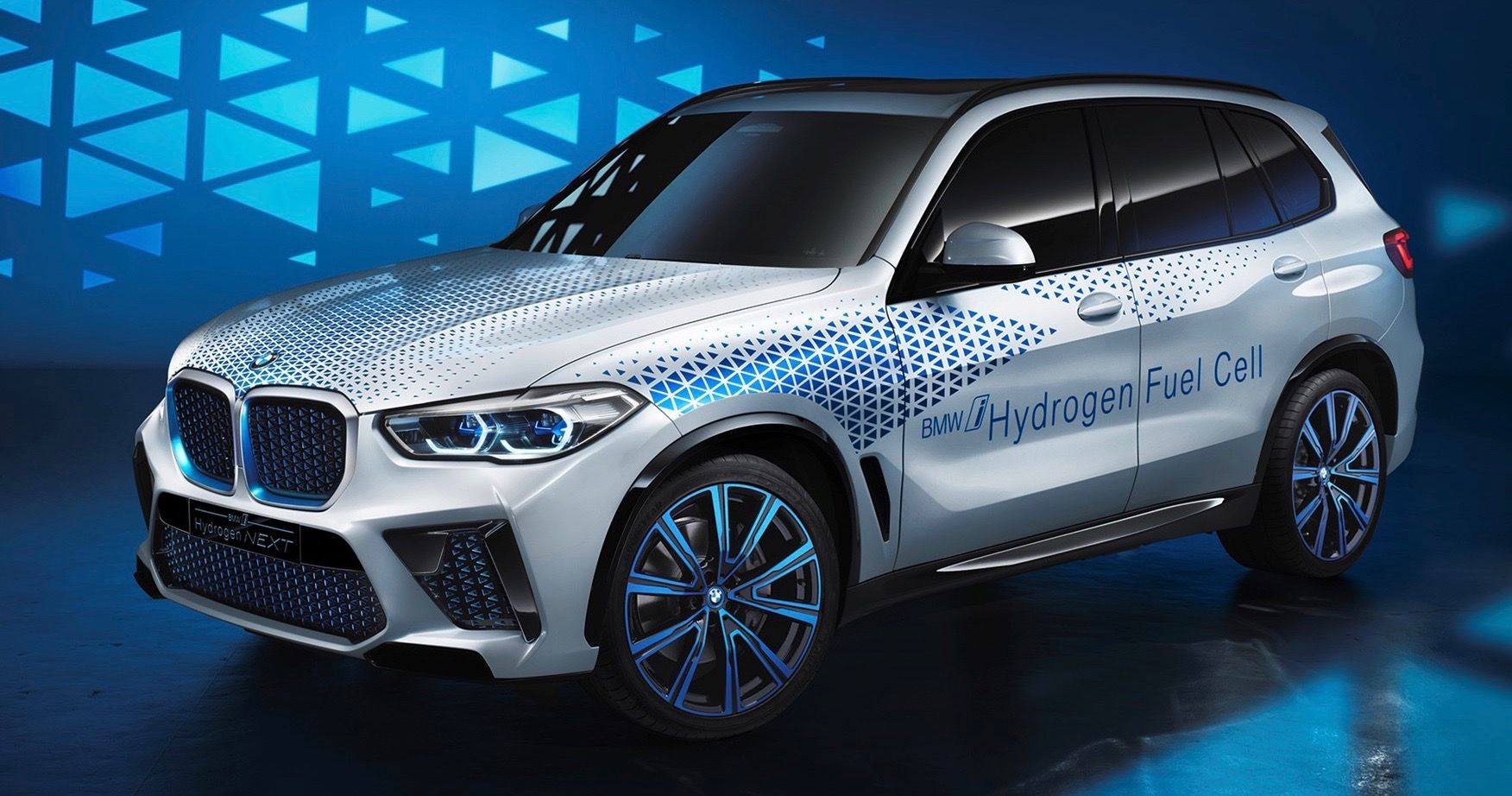Nowadays, electric battery powertrains are all the rage, but they’re not the only eco-friendly solution to greenhouse gas emissions. BMW is currently exploring several means of electrification that can also minimize greenhouse gas emissions. The automaker has showcased its latest development at the Frankfurt Motor Show this week and it looks promising.
On Tuesday, BMW debuted the i Hydrogen Next fuel cell development vehicle, which is based on the current X5 SUV. The new vehicle displays the automaker's developments in hydrogen power and will debut in 2022. BMW wants to have fuel cell vehicles on the market by 2025, yet "the timing very much depends on market requirements and overall conditions," the automaker says.
The difference between a battery-electric vehicle and a hydrogen fuel cell vehicle is how the electricity is produced. Instead of a battery, which must be charged at a station, a hydrogen fuel cell car takes hydrogen, the most abundant element in the universe, and produces electricity from it while the vehicle is being operated.
The hydrogen for the fuel cell vehicle will be produced in the future by electrolysis, which involves passing electricity through water, but in order to ensure that the energy is truly green, the electricity must be initially produced by clean energy sources like hydropower, solar power or wind power, which produce marginal polluting emissions.
BMW has altered the X5's exterior to differentiate it from standard powered X5s. The body features a blue triangle livery as well as blue grilles, headlights, wheels, and rear diffuser, where the blue elements substitute the tailpipes since there's no internal combustion engine.
As for hydrogen's benefits, BMW states that its refilling times are on par with a gasoline car, meaning it's slightly faster than a standard EV. The range depends on the size of the tank, while the powertrain doesn’t vary. The only drawback is the lack of infrastructure in most countries, although some are currently under development.
RELATED: Limited-Edition BMW M4 Celebrates German Racing With Three Official Colors
BMW had already explored hydrogen in the past. In 2013, the automaker partnered with Toyota to develop a powertrain that operated on compressed hydrogen gas. BMW has implemented that JV drive system in a fleet of 5 Series Gran Turismo vehicles, and the two companies are still collaborating to continue developing the technology.

